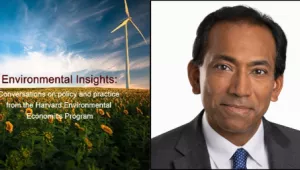Note
It is the fifth anniversary of the publication of "The New Harvest". First published in 2011, it is a groundbreaking book which promotes agricultural innovation across the African continent. The Conversation Africa's Samantha Spooner asked the author, Calestous Juma, about its impact and how other academics can make their work relevant to policy and action.
What is the central message of "The New Harvest"?
The central argument of the book is that Africa can feed itself in a generation. But achieving this goal will require fundamental shifts in the way agriculture is viewed and supported.
In much of Africa, agriculture and the economy are one and the same. It is very difficult to expand the overall economy without growing agriculture. A key insight from this perspective is that the purpose of agriculture is not just to meet food security needs. A country can achieve food security through imports. It addresses the needs of the 60–70% of the people who are dependent on agriculture for on-farm and off-farm employment.
Changing the situation entails defining agriculture as a technology-based, innovation-driven, and entrepreneurial economy. Defining it this way also makes it easier to attract young people with modern expertise into this economy. The use of the term "farming" projects negative connotations of marginalised people except for a few who own large farms. The term "agribusiness", which was coined in the US in 1956 for nearly similar reasons, is a better reflection of this economy....
Continue reading: https://theconversation.com/lessons-from-the-new-harvest-on-how-academics-can-turn-their-work-into-policy-69121
Spooner, Samantha and Calestous Juma. “Lessons from 'The New Harvest' on How Academics Can Turn Their Work into Policy.” The Conversation, December 8, 2016





